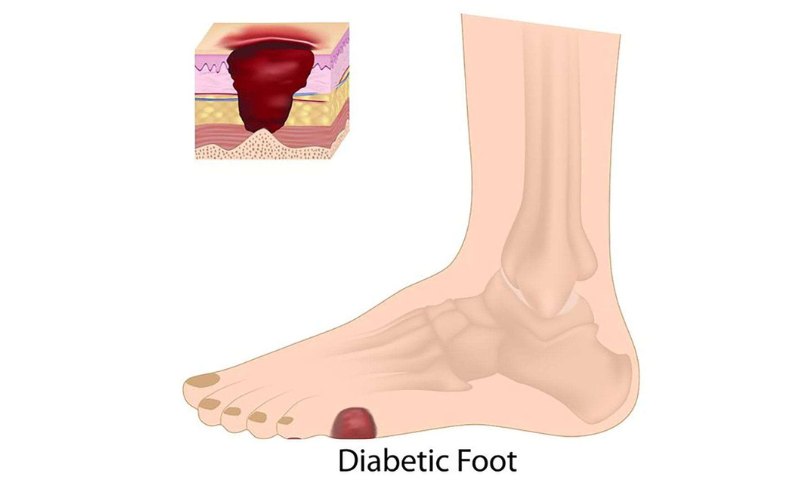 Diabetic
neuropathy can significantly affect the legs, leading to various complications
and symptoms. Over time, high blood sugar levels can damage the nerves in the
legs, resulting in issues that range from mild tingling to severe pain and
weakness.
Diabetic
neuropathy can significantly affect the legs, leading to various complications
and symptoms. Over time, high blood sugar levels can damage the nerves in the
legs, resulting in issues that range from mild tingling to severe pain and
weakness.
Foot-Related
Issues Associated with Diabetic Neuropathy:
- Numbness and Tingling:
Diabetic neuropathy can cause sensations of numbness, tingling, or a
"pins and needles" feeling in the legs and feet. This sensory
loss increases the risk of injury, as individuals may not feel pain or
notice wounds.
- Burning or Shooting Pain:
Many individuals experience burning or shooting pain in the legs due to
diabetic neuropathy, which can disrupt daily activities and sleep.
- Muscle Weakness: As the
condition progresses, diabetic neuropathy may lead to weakness in the leg
muscles, impacting mobility, balance, and the ability to walk or stand.
- Foot Deformities: Reduced
sensation can result in foot deformities such as hammertoes or claw toes,
increasing the risk of developing foot ulcers.
- Foot Ulcers: Individuals with
diabetic neuropathy often experience reduced sensation and poor blood flow
to the feet, making them more prone to foot ulcers. If not treated
promptly, slow-healing ulcers can lead to severe infections.
- Charcot Foot: In advanced
stages, diabetic neuropathy can result in Charcot foot, a debilitating
condition in which the bones in the foot weaken and fracture, causing
deformity and collapse.
Management
of Diabetic Neuropathy and Leg Issues:
- Blood Sugar Control and Regular
Check-ups: Maintaining optimal blood sugar levels through medication,
diet, and lifestyle choices is essential. This proactive approach can slow
the progression of diabetic neuropathy and minimize its effects.
- Custom Orthotics: Custom-made
shoe inserts (orthotics) can provide vital support, evenly distribute
pressure, and help maintain proper foot alignment, thereby reducing the
risk of foot deformities and ulcers.
- Regular Foot Care: Daily foot
inspections are crucial for early detection of any injuries or ulcers.
Proper foot care can significantly reduce the risk of complications.
- Physical Therapy:
Participating in exercises and physical therapy programs can improve
muscle strength, balance, and mobility, enhancing overall leg health.
- Smoking Cessation: Quitting
smoking is beneficial for individuals with diabetic neuropathy, as smoking
can damage blood vessels and exacerbate nerve health issues.
Implementing
these management strategies can help individuals with diabetic neuropathy
maintain better foot health and overall well-being.
There are no products to list in this category.
